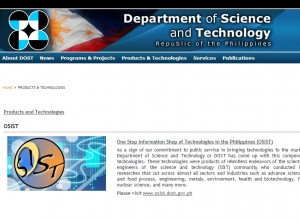DoST launches Internet infra to protect netizens from cybercrime
MANILA, Philippines—With 9 of 10 Internet users falling prey to cyber criminals, the Department of Science and Technology (DoST) has started an initiative that will enable netizens to be safe from online poseurs and avail of government services faster.
The DoST’s Philippine National Public Key Infrastructure (PNPKI) optimizes the use of digital certificates to secure Internet transactions between people and with the different government agencies.
A digital certificate is an attachment to an electronic message used to verify that the sender is who he or she claims to be and to give a receiver the means to encrypt a reply.
According to Rage Callao, of the DoST Advanced Science and Technology Institute, the PNPKI is a virtual key which subscribers can use to secure files they send over the Internet. The infrastructure, he explained, would authenticate and validate virtual identity through the digital certificate of the person at the other end of the online transaction.
Callao pointed out, “The PNPKI is a way to identify people, organizations and machines electronically. To be able to have reliable and trusted transactions online, systems must be able to identify the parties they are transacting or communicating with. Using PNPKI, the digital certificates provide an authoritative way to prove that parties to an online transaction are who they say they are.”
He said that digital certificates could be issued to people, organizations and systems after a strict process of verification by the registration authority which would take two days at most. Among the initial registration authorities are the Social Security System; the Government Service Insurance System; the Philippine Health Insurance System; and the Pag-IBIG Fund, implementers of the unified multi-purpose ID system.
The issuance of the digital certificate to would-be subscribers should not go beyond five days. “These digital certificates may then be used to authenticate oneself online, sign electronic documents and secure electronic transmissions,” Callao explained.
An added service, he said, would be the verification and authentication of digital certificates presented to subscribers online by other parties.
Under the PNPKI, the National Computer Center (NCC) will act as the certificating authority to issue three types of digital certificates: authentication, signing and secure socket layer or SSL.
Authentication and signing digital certificates are used by persons to certify their email or files and digitally sign documents while the SSL is for computers, servers, routers, or wi-fi devices for the safe transmission of private documents and data online.
Basically securing data transmitted between parties through PNPKI will avoid constant breakdowns and interruptions, enabling the faster delivery of online public services.
Now a person who wants to send an encrypted message can apply for a digital certificate, valid for two years, with a registration authority that will ask the certificating authority, the NCC, to generate the applicant’s digital certificate and private key. The digital certificate with the virtual key can then be used to encrypt emails or documents as well as to authenticate or put signatures in them and subsequently decode them.
A 2013 Department of Justice primer on facts and trends about cyber crimes revealed that nearly 9 of 10 Filipino internet users have been victimized by online malicious activity. It cited a 2010 report prepared by a security software company which said that 87 percent of the country’s Internet users have been victimized by malware invasion; phishing scams including identity theft and fraud; and sexual predation.
According to the Criminal Investigation and Detection Group’s anti-transnational crime division, the police unit handled 2,778 cases from 2003 to 2012 of cyber crime complaints from government agencies and private persons nationwide.
RELATED STORIES
DepEd, DOST seek 500 scholars for teaching posts
32 DOST staff leave for ‘high paying’ jobs abroad
Nuke research institute among lowest funded in proposed DOST budget
